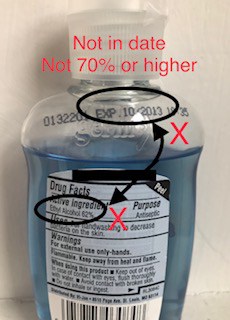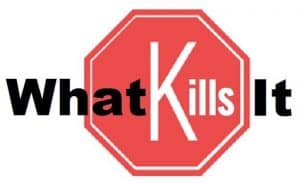posts and pages could include affiliate links which may result in earnings for the site. As an amazon associate, we earn from qualified purchases.
Given the current news about the latest strain of 2019 novel human coronavirus, Covid-19 it’s only natural that, we the people, do everything in our power to keep germs from spreading. Two high priority questions being asked right now are: Do hand sanitizers really work? and Does hand sanitizer kill coronavirus?
The shorts answer is YES to both questions and below you’ll find which hand sanitizers have some research behind their claims. But before that, it’s important for U.S consumers to understand why we can’t just buy a hand sanitizer rated for coronavirus. Enter FDA Regulations.
Please allow us a moment, as we do our best to explain the delicacies of United States hand sanitizer kill claims vs. global studies. In just a minute or two, you should have a near perfect understanding of whether or not a hand-sanitizer is worth it. Here we go…
Up to 15% off on Purell sanitizersA Brief Intro into Hand Sanitizers: FAQ Style
Do Hand Sanitizers Need to be EPA Registered?
NO. Hand Sanitizers fall under the jurisdiction of the FDA (Food and Drug Administration) because they are for human, topical use. The EPA deals with sanitizing and disinfecting inanimate objects like countertops, floors, toys, fabrics, door knobs, medical instruments, etc..
Does the FDA Approve and Register Hand Sanitizer Claims?
No, at least not in the same manner in which the EPA handles and registers surface disinfectants. Instead, the FDA regulates the ingredients that manufacturers are allowed to use when making a hand-sanitizer.
Are Hand Sanitizers Regulated at All?
Hand Sanitizers are considered Over the Counter Drugs (OTC) according to the FDA and must comply with all regulations that apply to OTC Drugs. This includes approved ingredients, efficacy claims (kill claims) and proper labeling. An over the counter product maker is forbidden from making claims that say their product is capable of “killing” anything….even if it can.
Where the heck did all the hand sanitizers go? There used to be hundreds of choices!
In may be news to you but back in April of 2019, the FDA banned 28 chemicals from being used in hand sanitizers due to safety concerns. A decision that leaves manufacturers with only 3 approved active ingredient options:
- Isopropyl Alcohol
- Ethyl Alcohol
- Benzalkonium Chloride
Do Hand Sanitizers Actually Work at Killing Disease Causing Microbes?
Global studies point to: yes. Regardless of studies, US manufacturers are forbidden from marketing their hand sanitizing products with kill claims.
So where does that leave us?
Luckily, science exists…and scientists love to conduct studies that prove whether or not something does or does not in fact kill something else. And now we’ll get into the science behind hand sanitizers and what type of research has been done across the world.
National Center of Biotechnology Information
For those of you unfamiliar with the National Center for Biotechnology Information (NCBI), prepare to be amazed. Essentially, NCBI is part of the US National Library of Medicine and home to an enormous database which stores research studies conducted across the world. Much of it is off limits to the general public, but other parts and studies are available to common folk like us.
Do Hand Sanitizers Kill Human Coronavirus – The Deadly Strains
Yes, on a global level, some hand sanitizers were studied and proven to be effective for killing the deadly 2002 SARS coronavirus, but no hand sanitizer sold in the US has the legal right to make these claims, or any claims pointing to kill power of any pathogen; even when backed by science.
So if you see a hand sanitizer that say’s “kills SARS or “Kills Covid or Novel Coronavirus” they are not complying with FDA regulations of OTC (over the counter) claims .
In fact as our research unfolds for this article, the makers of Purell, have just been warned by the FDA to STOP making claims that their ethanol-based hand sanitizer could be effective for controlling the spread of some deadly pathogens.
You can read that letter here, but here is one little snippet of the warning letter:
FDA Warning Letter to Gojo Industries, makers of Purell Hand Sanitizer – “Your labeling claims that PURELL® Healthcare Advanced Hand Sanitizers are effective in preventing disease or infection from pathogens such as Ebola, MRSA, VRE, norovirus, flu, and Candida auris, and in preventing the spread of infection, go beyond merely describing the general intended use of a topical antiseptic as set forth in the above-referenced relevant rulemakings.”
Remember, hand sanitizers are regulated by the FDA and US manufacturers must comply.
BUT…What about Hand Sanitizer Studies?
But, there have been favorable studies…at least two that tested whether or not hand sanitizers could kill the SARS coronavirus.
Study 1
A 2005 study (link) out of Germany that proved certain hand sanitizers were capable of killing the 2002 SARS Coronavirus and that research is hard for anyone to ignore. Lucky for us (consumers) we are not mandated to ignore studies. Especially when we’re simply trying to equip our cars, purses, and desk drawers with a best-guess method of sanitizing our hands.
Here is a snippet of that research:
The recent severe acute respiratory syndrome (SARS) epidemic in Asia and Northern America led to broad use of various types of disinfectant in order to control the public spread of the highly contagious virus. We therefore investigated eight disinfectants for their activity against SARS-CoV according to prEN 14476. Four hand rubs were tested
Which 4 Hand Sanitizers Were Tested and were able to Kill SARS Viral Particles?
- Sterillium Rub 80% Ethanol
- Sterillium Gel 85% Ethanol
- Sterillium Virugard 95% Ethanol
- Sterillium based on 45% Isopropanol, 30%n-propanol and 0.2% mecetronium etilsulphate. – no longer made.
Study 2
In 2006, there was yet another study (link) which tested 70% Ethanol…and that study concluded that 70% Ethanol did kill and render SARS Coronavirus particles below detectable levels.
What Does the CDC (Center for Disease Control) Say About Hand Sanitizers
If the above global studies aren’t enough to convince you that hand sanitizers work, then this message from our nation’s own CDC should help:
“An alcohol-based hand sanitizer is the preferred method for cleaning your hands when they are not visibly dirty because it:“
- Is more effective at killing potentially deadly germs on hands than soap
- Is easier to use during the course of care, especially
- when moving from soiled to clean activities with the same patient or resident
- when moving between patients or residents in shared rooms or common areas
- Improves skin condition with less irritation and dryness than soap and water
You can read CDC’s full message here: CDC Show Me the Science on Hands
So if, as a consumer, you like to have scientific research to support your hand sanitizing buying decisions, a hand sanitizer with an ethanol (ethyl alcohol) active ingredient of at least 70%, might be right up your alley.
Where to Buy Hand Sanitizers with at least 70% Ethanol?
Ethanol based hand sanitizers may be in abundance at your local supermarket or pharmacy themed stores but many do fall short of 70% ethyl alcohol. So make sure you take a moment to read the label and look for a match.
Check Expiration Dates
If you have a supply of hand sanitizer sitting around your home (don’t we all), check the expiration date. Hand sanitizers lose their effectiveness over time. Here is a picture of a hand sanitizer that needs replacing:

If you like to shop online, we’ve included affiliate links to amazon listings of hand sanitizer containing at least 70% ethyl alcohol. Use the links to verify pricing, read reviews or complete an online purchase.
Hand Sanitizers That Contain at Least 80% Ethanol (also known as Ethyl Alcohol)
Hand sanitizers with at least 80% Ethyl Alcohol are not that easy to find but here is a link to the full Sterillium line which is 80-85%.
Sterillium Rub 85% Ethanol – Full Line of Sterillium (link to amazon)
Hand Sanitizers With At Least 70% Ethanol (also known as Ethyl Alcohol)
These all link to amazon product listings and we cannot guarantee their availability. If items are out of stock, you may find the exact products at your local stores and pharmacies.
Purell ADVANCED Formula (NOT Regular Formula)
Purell Advanced Travel Single Pouches
Solimo Brand (amazon)
Bulk Dispenser REFILL (81 Ounces of Purell Advanced)
If hand sanitizer stocks are depleted, remember places like Dollar Tree, Family Dollar, Convenience Stores (the less popular shopping destinations).
And…many people have always made their own hand sanitizer. A “how-to” is available on kindle. Click the picture to be taken to the amazon page.

In Summary
The decision for which hand sanitizer to use or purchase is a personal one. If you’re in the US, our country’s hand sanitizer manufacturers cannot claim effectiveness and if they do, they will likely receive a warning letter from the FDA.
If you are visiting this page from elsewhere in the world, you can apply this data to your country’s manufacturers – 70% or higher Ethyl Alcohol (Ethanol).
Fortunately, consumers are still allowed to research and make buying decisions based on any available science. We invite you to read the studies we’ve linked to and encourage you to proactively seek out even more studies to support your buying decisions.
As regular consumers of hand sanitizers, we love any kind that has between 70-85% ethyl alcohol as its active ingredient. One that includes a moisturizer can be beneficial because it can begin to dry out the skin.
For information regarding Surface Disinfection of human coronavirus Covid-19 – Read our Article Here
If you found this article helpful, please consider sharing!
All sources linked throughout article at point of mention
